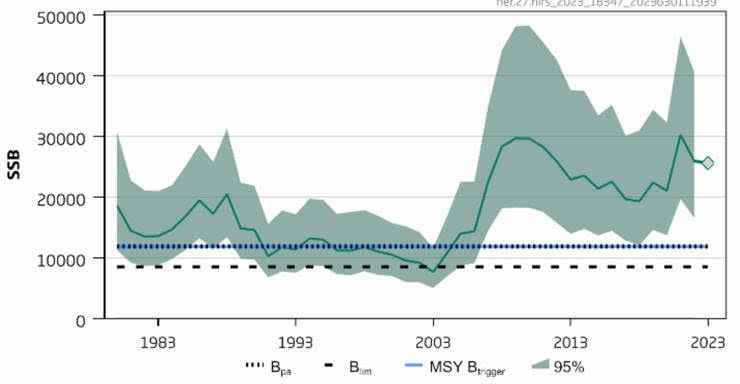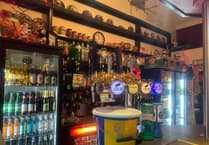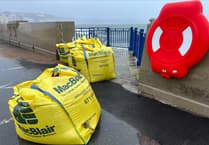Manx boats will be able to fish for herring for the first time in decades, after a ‘once in a generation’ post-Brexit quota deal with the UK.
The government says the deal follows ‘lengthy and productive’ talks with the UK government, and means local fishermen can fish commercially viable quantities of herring for the first time in nearly 25 years.
The island has now been given a 100-tonne herring quota as a result of the [Brexit] EU–UK Trade and Cooperation Agreement – this quota having previously been allocated to the EU fleet.
And a 100-tonne quota for the small and extremely valuable lobsters, known as langoustines, will also be granted from 2024.
Fishermen had been free to catch the oily fish, which can be salted, smoked and pickled (most notably into Manx kippers), for centuries before the EU Common Fisheries Policy introduced quotas in the 1980s.
A century earlier and at its peak, the Manx herring industry was estimated to directly employ around 3,500 people with a thriving kipper industry in full swing.
However, falling stocks meant Manx fishermen’s focus turned to scallops and queenies and the quota allocated by the UK fell so far that the fishery was not commercially viable.
By the time the herring numbers recovered to today’s sustainable levels, quotas had become consolidated outside the Isle of Man under UK quota allocation rules.
However, since Brexit the UK has gained a greater share of Irish Sea herring quotas and the Secretary of State for Environment, Food and Rural Affairs, Thérèse Coffey MP, recently determined how this should be shared among British vessels.
It means Manx fishermen can once again diversify, signalling the end of their reliance on shellfish.
By 2026, the island will have 400 tonnes of herring and 235 tonnes of langoustines. Manx Fish Producers’ Organisation chief executive officer David Beard explained that negotiations over the deal ‘centred on the fact that Manx boats could not fish for these quota species in our own territorial sea but boats from UK could’.
Mr Beard added that there will be a need to purchase fishing gear to be able to target the herring and langoustines.
For this purpose the Department of the Environment, Food and Agriculture has made an additional £150,000 available to fishing businesses wishing to diversify, with those interested to contact the MFPO at [email protected].
He explained that the MFPO will arrange to have two or three boats fitted out this year, ‘and hope to add to that in future years as the quota increases, provided there is enough stock based on the annual stock assessments’.
‘For many years the Manx fleet has relied solely on king and queen scallops for their income, but these are seasonal fisheries and there are periods when neither is fishable. The new quota will allow a number of Manx boats to diversify into the new fisheries which will be managed sustainably,’ Mr Beard said.
Clare Barber MHK, Minister for Environment, Food and Agriculture, said: ‘These quotas are a major boost for the Manx fishing industry and a once-in-a-generation opportunity. The Manx herring quota could quadruple over three years – bringing a herring industry worth hundreds of thousands of pounds and a langoustine quota potentially worth far more’.
The total amount of herring stock biomass (total weight of fish) in the North Irish Sea is currently around 25,500 tonnes, which is well above sustainable levels. This is compared to around 13,000 in 1983.
Scientific advice for 2023 was for no more than 7,279 tonnes to be fished in the North Irish Sea herring stock, and following Brexit negotiations 6,870 tonnes was allocated to the UK – 1,464 tonnes greater than it would have been if the UK were still in the EU Common Fisheries Policy.





Comments
This article has no comments yet. Be the first to leave a comment.